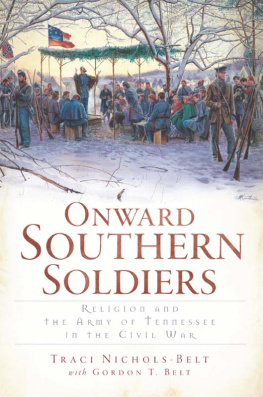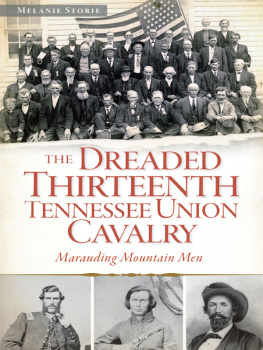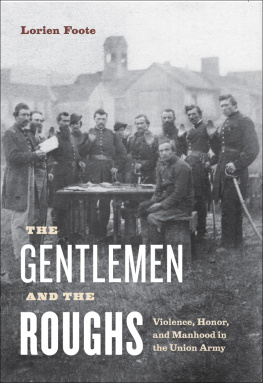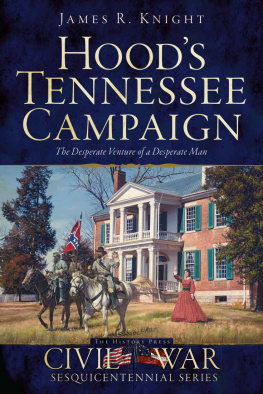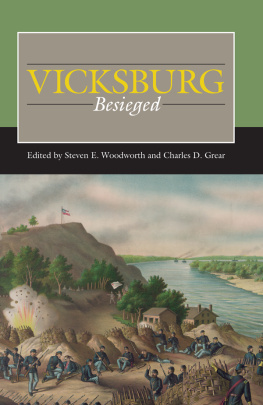
Published by The History Press
Charleston, SC 29403
www.historypress.net
Copyright 2011 by Traci Nichols-Belt and Gordon T. Belt
All rights reserved
Front cover: Sunrise Service by Mort Knstler. 2006 Mort Knstler, Inc. www.mkunstler.com
First published 2011
e-book edition 2012
ISBN 978.1.61423.334.3
Library of Congress Cataloging-in-Publication Data
Nichols-Belt, Traci.
Onward southern soldiers : religion and the Army of Tennessee in the Civil War / Traci Nichols-Belt, with Gordon T. Belt.
p. cm.
Includes bibliographical references and index.
print edition ISBN 978-1-60949-374-5
1. United States--History--Civil War, 1861-1865--Religious aspects. 2. Confederate States of America. Army of Tennessee--Religion. 3. Soldiers--Religious life--United States--History--19th century. 4. War--Religious aspects--Christianity--History--19th century. I.
Belt, Gordon T. II. Title.
E635.N58 2011
973.778--dc23
2011025741
Notice: The information in this book is true and complete to the best of our knowledge. It is offered without guarantee on the part of the author or The History Press. The author and The History Press disclaim all liability in connection with the use of this book.
All rights reserved. No part of this book may be reproduced or transmitted in any form whatsoever without prior written permission from the publisher except in the case of brief quotations embodied in critical articles and reviews.
For my mother, Anna Lee Nichols
CONTENTS
ACKNOWLEDGEMENTS
This study began when I entered graduate school in the fall of 1999 working toward my masters degree in history at Middle Tennessee State University. That fall, I chose the broad topic of religion and the Civil War as the subject of my thesis. I continued my research and further defined the scope of my subject throughout my graduate studies, finishing my thesis in the spring of 2003. The body of this work was completed during those years.
The works of a number of scholars, many of whom are mentioned in the introductory chapter of this book, contributed to my understanding of this bloody conflict. They laid the foundation for my own examination into how religion influenced the lives of the soldiers who served in the Army of Tennessee, CSA. Since the completion of my research, other scholars have further reinforced my conclusion that religion played an integral role in the lives of those who fought and died in the Civil War, including Dr. George Rable, who observes in his book, Gods Almost Chosen Peoples, For clergy and laity alike, the war became a holy crusade.
In many ways, this book has been its own crusade. My intentions from the beginning were to publish my research in an expanded form. One chapter from this book was published in the Tennessee Historical Quarterly in the Winter 2004 edition, but personal family obligations made it necessary for me to set this project aside for a number of years. The 2011 Sesquicentennial provided perfect motivation and timing for me to complete the work that I began so long ago. I am very grateful to The History Press and to my editor, Will McKay, for taking an interest in my book proposal and for seeing this project through to publication.
Through diaries, letters, journals, published sermons and memoirs, this book delves into the hearts and minds of the men who served in the Army of Tennessee, CSA. My husband and I owe a debt of gratitude to the institutions and archivists that provided us with access to these important records of our past, in particular John Tilford and the University Archives and Special Collections at the University of the South; Stones River National Battlefield; Taffey Hall and the Southern Baptist Historical Library and Archives; Lucinda Cockrell and the Center for Popular Music at Middle Tennessee State University; and Carol Roberts and the Tennessee State Library and Archives.
I also wish to offer my gratitude to Dr. Carroll Van West and Dr. Susan Myers-Shirk, graduate professors of history at Middle Tennessee State University, for their guidance and support. I am genuinely appreciative of their early interest in my topic and for all they have done to help make this book possible.
There are no words to adequately express my love and gratitude for my loving husband, soul mate and best friend. Gordon provided research for the illustrative material within this book and provided extensive editorial support. His advice, critique, love and prayers have also helped me beyond measure. With this project, as in our daily lives, he is a patient and dedicated partner whose support made the completion of this book possible.
Finally, I dedicate this book to the memory of my mother. From my childhood, my mother fostered within me a love for history. She initially encouraged me to pursue my graduate degree in history and later inspired my writing. My mother exemplified a godly woman whose consistent love and support I was blessed to have guide me throughout my life. She longed to see the completion of this work, and I believe somewhere in heaven she is smiling.
CHAPTER 1
HISTORIOGRAPHY OF THE ROLE OF RELIGION IN THE ANTEBELLUM AND CIVIL WAR SOUTH
Do not be afraid or discouraged because of this vast army.
For the battle is not yours, but Gods.
2 Chronicles 20:15 (NIV)
Wherever the Civil War raged, religion flourished. Regardless of class or position, religion permeated society, and Christian faith was the focal point of daily living. The influence of religion, especially as shaped by Confederate nationalism, on the Army of Tennessee is sparsely documented or studied, but Southern religious values clearly shaped Tennessee Confederates, contributing to both why and how they fought. Onward Southern Soldiers addresses this impact of religion on the members of the Army of Tennessee, CSA, from its leaders to its chaplains to its common soldiers.
Religion unified the South, providing a rationalized commitment to the Confederacy. Randall Miller, Harry Stout and Charles Reagan Wilson, editors of Religion and the American Civil War, argued, Politicians invoked God to justify their actions, soldiers and their families prayed for Gods blessing, and religious-based organizations mobilized relief and urged reform. Throughout political speeches, army orders, Sunday sermons and camp meetings, religious language and symbolism flooded Confederate communication. Religion supplied a universal language that helped to unite Southerners from various social classes, educational backgrounds and denominations to provide the Confederacy with a common purpose.
Historian Eugene Genovese suggested that Confederates, in general, envisioned themselves as a Southern David fighting a holy war against a Northern Goliath. For several decades prior to the war, Southerners adapted religious doctrine to their distinctive cultural and social values, thereby creating a unique Southern identity with God. From this foundation emerged Southern nationalism, which was grounded in a belief that the Confederate cause was the Christian cause. Politicians, military leaders, clergy and common soldiers alike entered the war with a genuine faith in a cause they believed divine, a faith that refused any consideration for compromise with the enemy. Throughout the war, religion proved to be the Confederates greatest weapon of warfare and the strongest builder of morale. In spite of the disparity in numbers and supplies, the faithful South began the war with an overwhelming confidence that God was on their side, and thus, victory was imminent. This foundation encouraged, motivated and comforted troops throughout the horrific trials of war.
Next page
